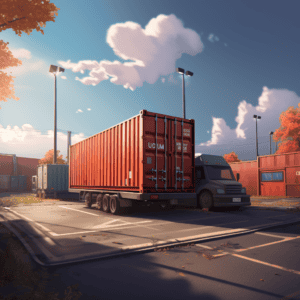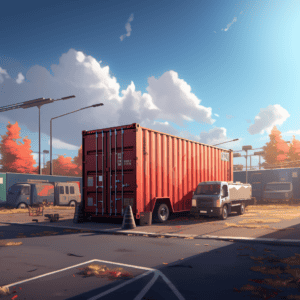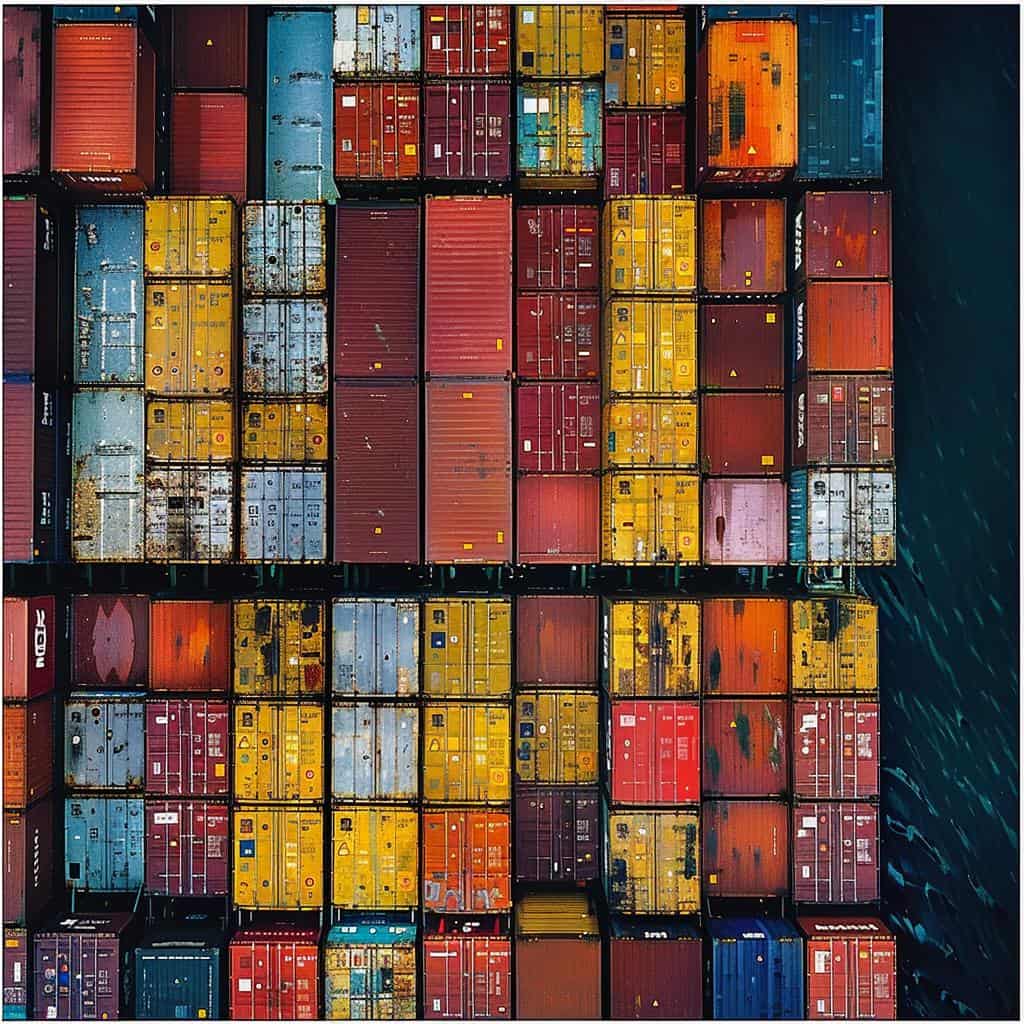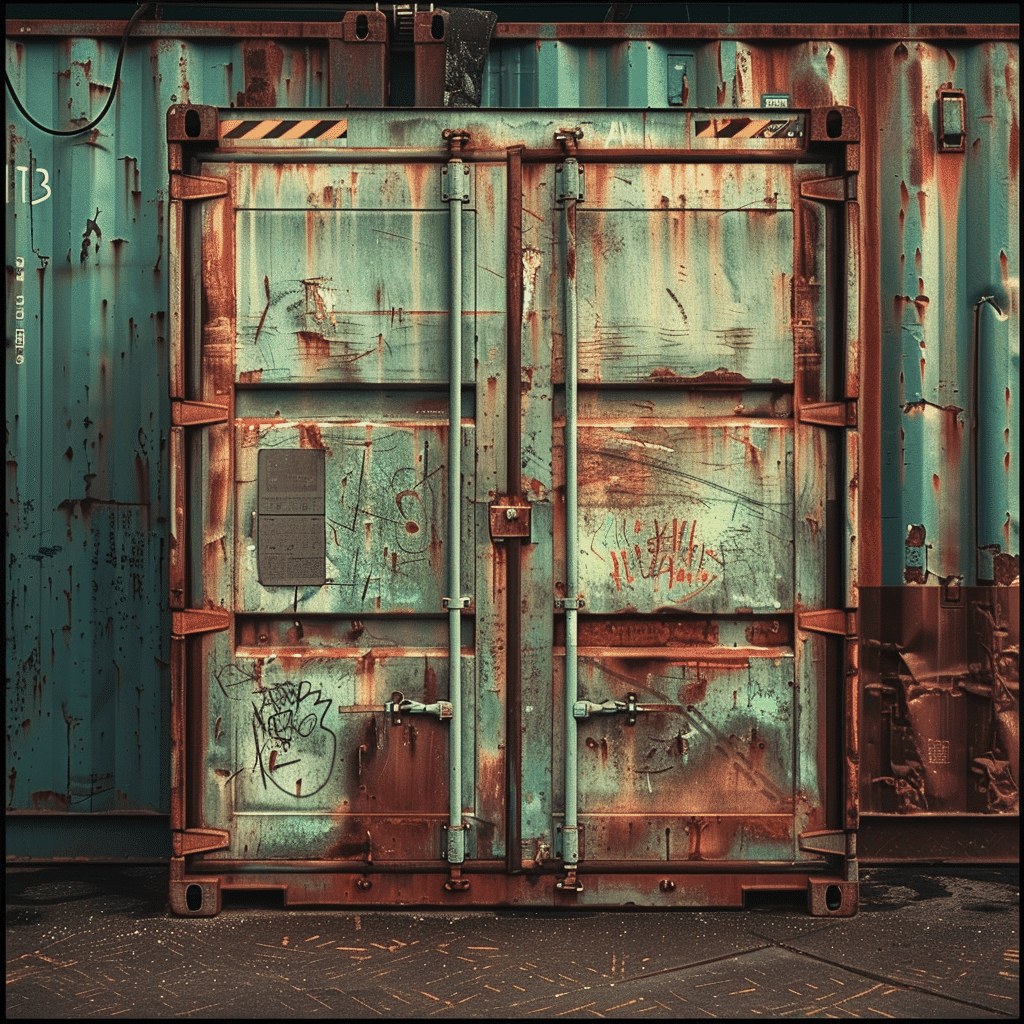Navigating the world of storage options can feel like wandering through a maze. You’re here because you’re torn between storage trailers and containers. Don’t fret! We’re about to break down the differences, pros, and cons of each, so you can make an informed decision.
Let’s dive in and untangle this storage conundrum together.
What is the difference between a storage container and a trailer?
Storage containers and trailers differ primarily in terms of mobility, accessibility, and usage. Storage containers offer ground-level access, making them easy to enter and ideal for stationary storage. They are typically made of steel, come in various lengths, and are not designed to be moved when loaded.
In contrast, storage trailers are positioned at dock height for easy loading and unloading, are wider, and are equipped with axles and wheels for mobility, making them suitable for transporting goods frequently from loading dock to one location to another. While containers provide a secure, stationary storage solution, trailers offer flexibility and ease of transport for dynamic storage needs.

The Facts About Storage Containers
When you’re considering a storage container, it’s important to know they’re typically made of robust steel, providing a durable and secure solution for your long-term storage needs. These containers are designed to withstand harsh weather conditions and physical impacts, ensuring that your items are kept safe and secure.
One of the key advantages of a storage container is the ground level access it offers. This makes it easy to load and unload items, reducing the risk of strain or injury. Additionally, these containers can be easily transported and placed at convenient locations.
In terms of size, storage containers come in a variety of dimensions, offering a flexible storage solution to fit your specific needs. So, whether you’re storing furniture, vehicles, or commercial goods, a storage container could be the ideal choice for you since there aren’t many things that you can’t store in storage containers.
The Facts About Storage Trailers
Despite the similarities with storage containers, you’ll find that storage trailers offer unique features and benefits of their own.
Now, let’s dive into the facts about storage trailers. Unlike containers, a storage trailer is typically larger and mobile, offering you the flexibility to move it around as needed. It’s designed for heavy-duty storage and transportation, making it an ideal choice if you’re dealing with large or heavy items.
The difference between a storage trailer and a container lies mainly in mobility and storage capacity. The former provides more space and is easier to move. In contrast, a container is usually stationary and smaller. The main question is – is mobility an important factor? According to NHTSA.gov and the fatality analysis reporting system, there is a high mortality rate connected to storage trailers.
How To Know Which Storage Type Is Right for You
To decide on the best storage solution for your needs, you’ll need to consider several key factors.
First, think about your storage needs. Is it temporary or permanent? A storage trailer can be moved easily, making it ideal for temporary storage. If you’re looking for a more permanent solution, a container might be your best bet.
Next, consider the items you want to store. Delicate items or those sensitive to weather changes might be better off in a container, as they’re usually more secure and weatherproof.
Lastly, consider cost and availability. Often, you’ll find that a storage trailer is more affordable and readily available. However, if security and weather protection are vital, investing in a container could be the right storage choice.

Maintenance and Longevity
Maintenance and longevity are crucial factors when considering storage trailers and containers. Storage containers, typically made of robust steel, demand minimal maintenance. They are renowned for their durability, often withstanding harsh weather conditions and resisting corrosion, which contributes to a longer lifespan that can exceed 20 years with proper care.
In contrast, storage trailers require more regular maintenance, akin to vehicle upkeep, including tire, brake, and axle inspections, as well as protection against rust and structural wear. While their lifespan can be comparable to containers, this is heavily dependent on the frequency of their use on the road and the conditions they are exposed to. Overall, while both options offer substantial longevity, containers edge out with lower maintenance needs, making them a more hassle-free long-term storage solution.
Frequently Asked Questions
How secure are storage containers and trailers against theft and vandalism?
Storage containers and trailers are generally secure against theft and vandalism, but their level of security can vary based on specific features and enhancements. Shipping containers are known for their sturdy, heavy steel construction, making them difficult to break into. This robust build not only provides a high level of security against theft but also makes them highly weather-resistant, capable of withstanding harsh environmental conditions.
On the other hand, storage trailers also offer security features, but they may require additional measures such as heavy-duty chains, cables, and locks to ensure maximum protection. Both storage options can be further secured with specialized locks and other security enhancements, making them reliable choices for storing valuable items. However, it’s important to note that while they offer a significant level of security, the effectiveness can be influenced by the specific security measures implemented by the user.
Is a shed cheaper than a shipping container?
On average, shipping containers tend to be more cost-effective than traditional sheds when considering the cost per square foot. For instance, purchasing a pre-owned 20-foot storage container might cost around $2,300, while constructing a typical 12×12 shed can range from $4,500 to $6,000. This cost advantage makes shipping containers a more economical choice for sheds and storage needs.
Additionally, shipping containers offer a multitude of benefits such as durability and security, which can further justify their value over traditional wooden sheds. However, it’s important to note that the initial cost can vary based on the condition and specifications of the shipping container compared to the materials and design of a shed.
What is the difference between a dry van trailer and a container?
The primary difference between a dry van trailer and a container lies in their design, usage, and mobility. Dry van trailers are typically taller and longer than shipping containers, offering more storage space.
They are designed to be towed and are ideal for transporting goods over roads. Dry vans protect and secure cargo during transit and are commonly used for shipping non-perishable goods. On the other hand, shipping containers are more versatile in terms of stacking and their optimal storage purposes.
They can be stacked for efficient space utilization and are often used for both land and sea transport. Containers are also known for their robust construction, usually made of steel, and are designed to be lifted and moved by forklifts or cranes. While containers require less maintenance than dry van trailers, the latter provides the advantage of greater storage capacity and ease of transport for road shipments.
Conclusion
In choosing between a storage trailer and a container, you’ve got to weigh your needs, the nature of the items to be stored, and your budget. The difference between the two lies mainly in their design, mobility, and functionality.
A storage trailer offers more mobility, allowing you to move things around with ease. On the other hand, a container or warehouse is more stationary but may provide better protection for your items.
Remember, it’s not so much about which is better overall, but about which is better for you. So, consider your unique situation and make an informed decision.
Whether you opt for a storage trailer or a container, it’s about finding the perfect fit for your storage needs.


